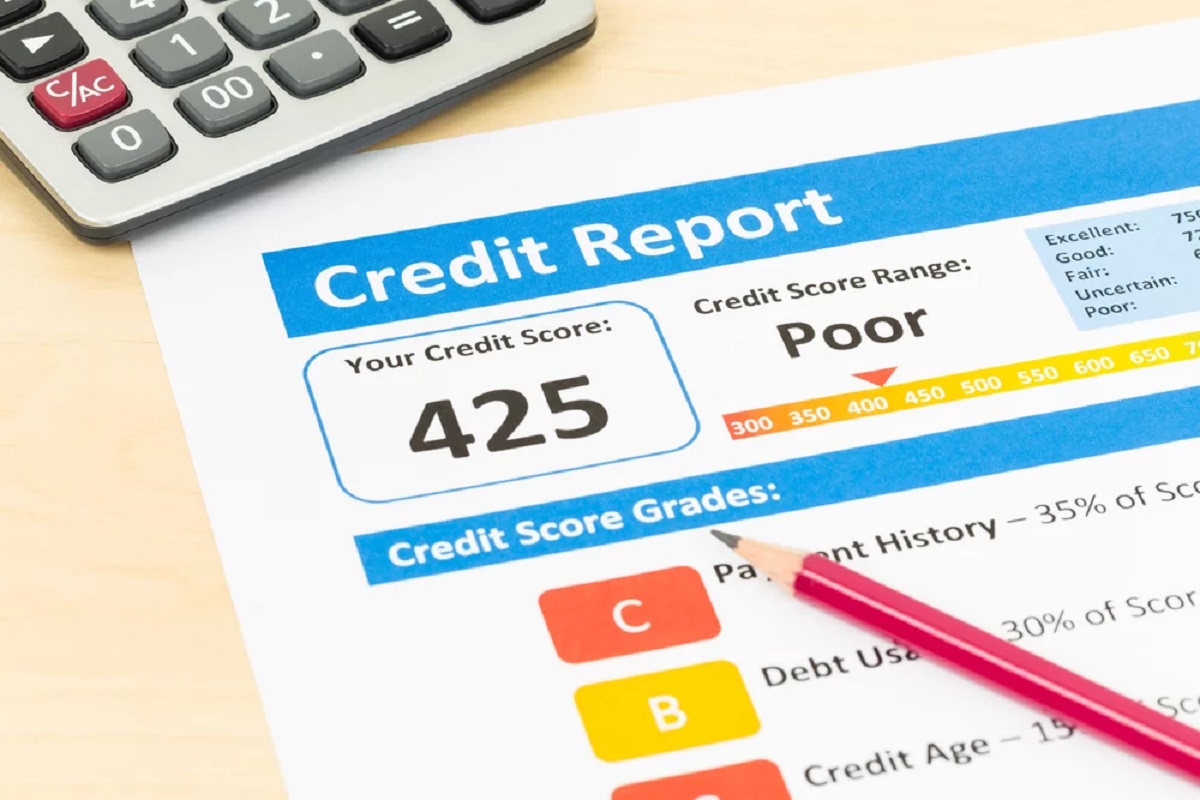Learning
Credit Repair 101: Steps To Rebuilding Your Credit Score

In today’s fast-paced financial world, a good credit score is like a golden ticket, granting you access to better interest rates, higher loan approvals, and an overall more secure financial future. But what happens when your credit is less than stellar? Fear not, credit repair is not as daunting as it might seem. With some dedication, diligence, and the right strategies, you can regain your financial standing and enjoy the benefits of a healthy credit score.
A common misconception is that repairing your credit is solely about removing negative items from your report. While that’s a significant aspect, there’s more to the story. Some individuals might seek out a professional credit repair service for assistance, but you can take several proactive steps on your own. Let’s delve into the fundamental steps to rebuild your credit score.
Understanding Your Credit Score
Your credit score is a numerical representation of your creditworthiness. It’s determined by analyzing various factors in your credit report, such as:
- Payment History (35 percent): This is your track record of making timely payments on loans and credit cards.
- Credit Utilization (30 percent): This pertains to how much of your available credit you’re using. It’s advisable to use less than 30 percent of your total credit limit.
- Length of Credit History (15 percent): This is the duration you’ve had credit. Lenders prefer individuals with a longer credit history as it provides more data on your borrowing behavior.
- Types of Credit in Use (10 percent): A mix of different credit types (like credit cards, mortgages, and auto loans) can be beneficial.
- New Credit (10 percent): This considers the number of new accounts you’ve opened or inquiries you’ve made recently.
By understanding these factors, you can prioritize actions that will have the most significant impact on improving your credit score.
Checking Your Credit Report

Before you can fix any errors or issues, you need to know what they are. Obtain a free copy of your credit report from the major credit bureaus: Equifax, Experian, and TransUnion. Everyone is entitled to a free report from each bureau every 12 months.
Review your report meticulously. Look for any inaccuracies, such as accounts you didn’t open, payments marked as missed when you’ve paid on time, or outdated negative information.
Dispute Errors on Your Report
If you find discrepancies in your credit report, you must dispute them. Incorrect negative information can unnecessarily bring down your credit score. To dispute an error:
- Write a letter to the credit bureau: Clearly explain what information you believe is incorrect and provide evidence supporting your claim.
- Send your dispute by certified mail: This ensures the credit bureau receives your letter and gives you a record of your communication.
- Wait for a response: The credit bureau has 30 days (in most cases) to investigate and respond to your dispute.
If the bureau corrects the error, they must provide you with an updated copy of your credit report. This process can be time-consuming but is essential to ensure the accuracy of your report.
Work on Reducing Debt
Reducing your overall debt is crucial for improving your credit score, especially when considering credit utilization. Focus on paying off high-interest debt first, as they cost you the most money over time. While it’s tempting to open another credit card to transfer balances for lower interest rates, remember that opening new accounts can negatively affect the “New Credit” aspect of your score.
Avoid New Debts and Inquiries
Every time a lender checks your credit because you’ve applied for a loan or credit card, it can slightly lower your score. These are known as hard inquiries. While one or two hard inquiries aren’t a big deal, several can be detrimental, especially in a short time. If you’re in the process of rebuilding your credit, avoid taking out new credit or loans unless absolutely necessary.
Pay Your Bills on Time
One of the most effective ways to rebuild your credit is consistently paying your bills on time. Given that your payment history accounts for 35 percent of your credit score, this can’t be overstressed. If you have trouble remembering due dates, consider setting up automatic payments or setting reminders.
Establishing a Positive Credit History
Starting fresh and establishing a positive credit history is essential after dealing with negative marks on your report. Consider opening a secured credit card, which is backed by a cash deposit you make upfront. The deposit amount is usually the same as your credit limit.
Use this card minimally and responsibly, which generally means paying the bill on time and in full every month. This shows lenders that you can manage credit responsibly, and over time, it will positively impact your credit score. A secured card can be a stepping stone to an unsecured card—one that doesn’t require a cash deposit and has better benefits.
Building a Healthy Credit Mix
Credit scoring models look at the various types of accounts you have, such as credit cards, mortgages, and installment loans. While it’s not essential to have one of each, it helps to have a mix. Responsibly managing different kinds of credit accounts can be beneficial to your overall credit picture. However, this doesn’t mean you should open new credit accounts just for the sake of diversifying your credit mix; only do so if it makes sense for your financial situation and goals.
Understanding the Impact of Closing Accounts
Many people, in an effort to improve their credit score, rush to close credit card accounts that they no longer use. However, this can potentially hurt your credit score, as it can increase your credit utilization rate (the ratio of your credit card balances to their credit limits).
A lower rate is viewed more favorably by credit scoring models. Closing older accounts can also reduce the length of your credit history. Before you close any credit accounts, consider how it might affect your credit profile and whether it’s the best move for your long-term financial health.
Dealing With Collections Accounts

If you have accounts that are in collections, you might feel the urge to pay them off. While paying your debts is generally a good practice, the truth is that paying off a collections account doesn’t automatically remove it from your credit report.
It will continue to appear on your report as a paid collection, which is still a negative mark. In some cases, you may be able to negotiate with the collections agency to have the account removed from your report in exchange for payment, which is often referred to as a “pay for delete” agreement. This isn’t always possible, and the success of such agreements can vary, but it’s an avenue worth exploring.
Seek Professional Advice if Necessary
There’s no shame in seeking help if you’re overwhelmed with the credit repair process. Credit counseling agencies can offer guidance, help you manage debt, and provide strategies for improving your credit. Make sure to choose a reputable agency that prioritizes your best interests.
Conclusion: Charting a Path to Financial Resilience
Embarking on the journey of credit repair can seem overwhelming, but with patience and the right strategies, you can rebuild and even thrive. The key lies in understanding your credit, taking a proactive approach to correct discrepancies, making informed financial decisions, and seeking help when necessary.
As you journey through the steps of repairing your credit, always remember that the path to a stellar credit score is paved with consistency, discipline, and a clear understanding of your financial picture. Your financial resilience and peace of mind are well worth the effort.






























